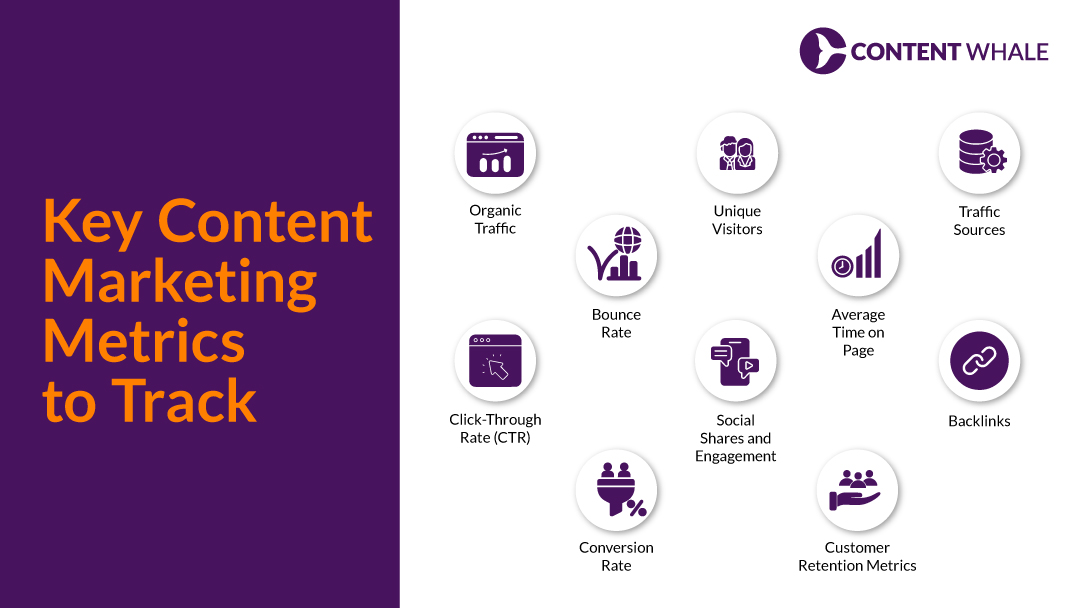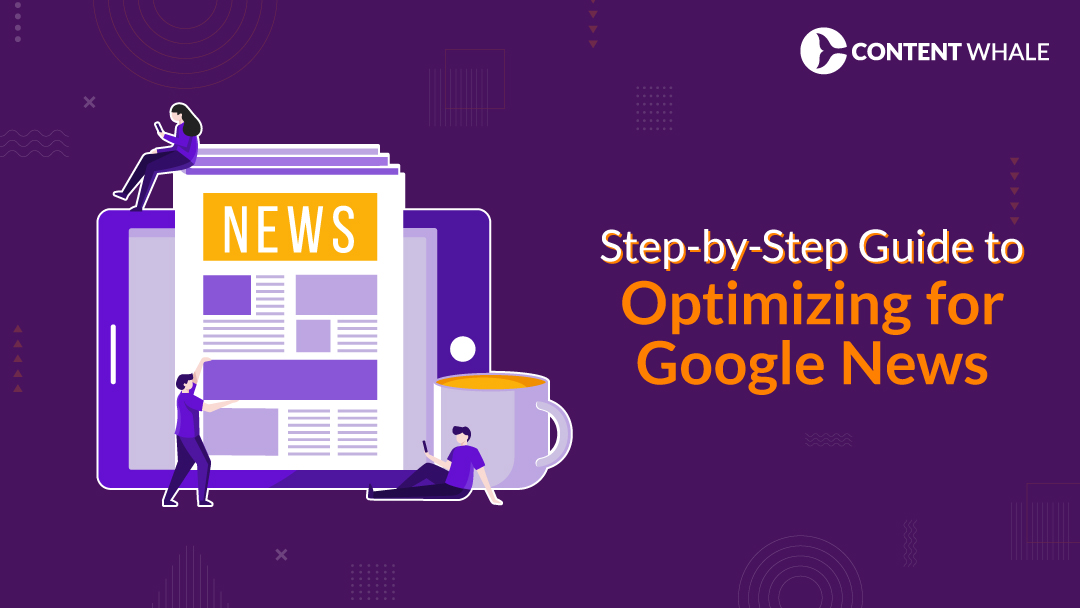Tracking content marketing metrics is fundamental for any business aiming to enhance its digital strategy. These metrics provide insights into the effectiveness of your content, helping you understand what resonates with your audience and what needs improvement. By regularly analyzing these metrics, you can make data-driven decisions that refine your strategy and improve your overall marketing performance.
One of the primary benefits of tracking these metrics is the ability to measure the return on investment (ROI). Understanding which content drives engagement and conversions allows you to allocate resources more efficiently and focus on creating high-impact content. Metrics such as lead generation, conversion rates, and customer lifetime value (CLV) are vital key performance indicators (KPIs) that directly impact your ROI.
Furthermore, effective marketing analytics can highlight trends and patterns in audience behavior. This enables you to tailor your content to meet the evolving needs and preferences of your audience. By focusing on metrics like page views, unique visitors, and social shares, you can gauge the reach and impact of your content.
In this blog, we will cover essential content performance metrics that every marketer should track, the tools available for measuring these metrics, and strategies to improve them. Here’s an overview of all the content marketing metrics, we’ll cover:
| Metric | Description | Purpose | Key Benefits | Tools to Track |
|---|---|---|---|---|
| Organic Traffic | Measures visitors from search engine results | Gauges SEO effectiveness | Indicates successful keyword optimization | Google Analytics, SEMrush |
| Unique Visitors | Counts distinct individuals visiting your site | Assesses reach and new audience acquisition | Helps expand audience base | Google Analytics |
| Traffic Sources | Identifies where website traffic originates (e.g., search engines, social media, referrals) | Understands audience behavior | Optimizes resource allocation across channels | Google Analytics, Ahrefs |
| Bounce Rate | Percentage of visitors who leave after viewing one page | Assesses user engagement | Improves page relevance and user experience | Google Analytics, Hotjar |
| Average Time on Page | Measures how long visitors stay on a page | Indicates content engagement | Enhances content quality and relevance | Google Analytics, Crazy Egg |
| Click-Through Rate (CTR) | Percentage of people clicking on a link compared to total impressions | Evaluates call-to-action effectiveness | Optimizes headlines and meta descriptions | Google Analytics, Coefficient |
| Social Shares and Engagement | Tracks how often content is shared on social media | Measures content reach and resonance | Extends content visibility | Hootsuite, Buffer |
| Backlinks | Number of links from other websites to your content | Enhances SEO and domain authority | Builds credibility and search rankings | Ahrefs, SEMrush |
| Conversion Rate | Percentage of visitors who complete a desired action (e.g., signup, purchase) | Assesses content’s ability to drive actions | Directly measures lead generation and sales impact | Google Analytics, HubSpot |
| Customer Retention Metrics | Tracks repeat purchase rates, churn rates, and CLV | Evaluates long-term customer engagement | Fosters loyalty and repeat business | Google Analytics, Salesforce |
Understanding and implementing these insights will help you maximize the effectiveness of your content and achieve better results in your marketing efforts.
Why Content Marketing Metrics Matter
1. Enhancing Content Strategy
Effective tracking of content marketing metrics is essential for refining your content strategy. These metrics offer valuable insights into how well your content is performing. Understanding these metrics helps you make informed decisions, allowing you to adjust your strategies to better align with your audience’s preferences and improve overall marketing effectiveness.
2. Data-Driven Decision Making
Metrics are crucial for decision-making because they provide concrete data on various aspects of your content’s performance. For instance, tracking key performance indicators (KPIs) such as page views, unique visitors, and conversion rates allows you to measure engagement and effectiveness. This data-driven approach helps identify what works and what doesn’t, enabling fine-tuning of your strategy for better results.
3. Maximizing ROI
Data-driven marketing significantly impacts ROI. When you know which content drives the most engagement and conversions, you can allocate resources more efficiently. Focusing on creating high-impact content that delivers better returns is essential. Metrics like lead generation and conversion rates directly reflect the success of your content in generating revenue and achieving marketing goals.
4. Understanding Audience Behavior
Marketing analytics enable you to identify trends and patterns in user behavior. This insight allows you to tailor your content to meet the evolving needs of your audience, thereby enhancing content performance. For instance, metrics such as social shares and time on page can reveal how engaging your content is, guiding you to create more of what resonates with your audience.
Tracking content marketing metrics is vital for making data-informed decisions, improving marketing strategies, and maximizing ROI. By focusing on the right KPIs and continuously analyzing your performance, you can achieve sustained success in your content marketing efforts.
Key Content Marketing Metrics to Track

1. Organic Traffic
Organic traffic measures how many visitors find your site through search engine results. This metric is crucial for understanding the effectiveness of your SEO strategy and the reach of your content. Higher organic traffic indicates successful keyword optimization and content relevance, contributing to improved visibility and engagement.
2. Unique Visitors
Unique visitors represent the number of distinct individuals who visit your website within a given time frame, typically a month. This metric helps gauge how well your content attracts new viewers. Tracking unique visitors provides insights into your content’s ability to draw fresh traffic and expand your audience base.
3. Traffic Sources
Understanding where your website traffic originates is essential for shaping your content marketing strategy. Traffic sources include search engines, direct URL entries, social media platforms, and referral links. Analyzing these sources helps you identify which channels are most effective and allows you to allocate resources to optimize performance across these platforms.
4. Bounce Rate
Bounce rate indicates the percentage of visitors who leave your site after viewing only one page. A high bounce rate may suggest issues with content relevance or user experience. Lowering your bounce rate involves improving page load times, enhancing navigation, and ensuring that your content meets visitor expectations. This metric is critical for assessing user engagement and content effectiveness.
5. Average Time on Page
Average time on page measures how long visitors stay on a specific page. Longer durations indicate that your content is engaging and valuable. Monitoring this metric helps identify which pages resonate most with your audience and which may need improvements. Enhancing content quality and relevance can significantly increase the time users spend on your site.
6. Click-Through Rate (CTR)
CTR measures the percentage of people who click on a link compared to the total number of people who see the link (impressions). This metric is vital for assessing the effectiveness of your calls to action and overall content appeal. Improving your CTR involves optimizing headlines, meta descriptions, and CTAs to better engage your audience and drive conversions.
7. Social Shares and Engagement
Social shares track how often your content is shared across social media platforms. High social share counts indicate that your content resonates well with your audience, extending its reach and impact. Engagement metrics such as likes, comments, and shares provide additional insights into how your content performs on social media, helping you refine your strategy to foster community interaction and brand loyalty.
8. Backlinks
Backlinks are links from other websites to your content. They are a critical factor in SEO, as they signal to search engines that your content is authoritative and trustworthy. A strong backlink profile can significantly enhance your site’s domain authority and search rankings. Tracking backlinks helps identify opportunities for content collaborations and link-building efforts.
9. Conversion Rate
The conversion rate measures the percentage of visitors who complete a desired action, such as signing up for a newsletter or making a purchase. This metric directly reflects the effectiveness of your content in driving leads and sales. Optimizing your content to improve conversion rates involves refining CTAs, enhancing user experience, and ensuring that your content aligns with user intent.
10. Customer Retention Metrics
Customer retention metrics track how well your content helps retain existing customers. Key indicators include repeat purchase rates, churn rates, and customer lifetime value (CLV). Content that resonates with existing customers fosters loyalty and encourages repeat business. Monitoring these metrics helps you understand the long-term impact of your content marketing efforts on customer relationships and overall business growth.
By incorporating these content marketing metrics into your tracking routine, you can gain deeper insights into your content’s performance, optimize your strategies, and enhance engagement, lead generation, and overall success. Regular analysis and refinement based on these metrics will ensure your content marketing efforts are data-driven and aligned with your business objectives.
Tools for Measuring Content Marketing Metrics
| Tool | Primary Features | Best For | Integration | Pricing (as of 2024) |
|---|---|---|---|---|
| Google Analytics | Website traffic analysis, user behavior tracking, conversion rate monitoring | Comprehensive web analytics | Integrates with many platforms | Free |
| SEMrush | SEO tracking, keyword rankings, backlink analysis, competitive analysis | SEO and competitive analysis | Various third-party integrations | Starts at $119.95/month |
| Ahrefs | Backlink tracking, keyword performance, organic traffic analysis | SEO and backlink management | Limited integrations | Starts at $99/month |
| HubSpot | Lead generation tracking, conversion rates, customer acquisition costs | Integrated marketing management | Integrates with major platforms | Starts at $50/month |
| Google Search Console | Search performance, clicks, impressions, average position tracking | SEO and search performance analysis | Direct integration with Google Analytics | Free |
| Databox | Data aggregation, customizable dashboards, KPI tracking | Centralized analytics and reporting | Integrates with 70+ tools | Free plan available, paid plans start at $49/month |
| Brand24 | Media monitoring, sentiment analysis, engagement metrics | Brand awareness and reputation tracking | Integrates with Slack, Google Analytics | Starts at $99/month |
| Visual Website Optimizer (VWO) | A/B testing, conversion rate optimization, form analytics | Website optimization and CRO | Integrates with Google Analytics, Kissmetrics | Free plan available, paid plans start at $173/month |
1. Google Analytics
Google Analytics is a fundamental tool for tracking content marketing metrics. It provides detailed insights into website traffic, user behavior, and conversion rates. You can monitor metrics such as organic traffic, bounce rate, and average time on page, which are essential for evaluating content performance. The platform’s user-friendly interface and robust reporting capabilities make it a go-to for many marketers.
2. SEMrush
SEMrush is a comprehensive tool that covers a wide range of marketing analytics. It excels in SEO tracking, providing data on keyword rankings, backlinks, and traffic sources. SEMrush’s competitive analysis features allow you to see how your content performs against competitors, helping you identify opportunities for improvement and enhancing your overall ROI.
3. Ahrefs
Ahrefs is another powerful tool focused on SEO and backlink analysis. It offers detailed reports on organic search traffic and keyword performance, which are critical key performance indicators (KPIs). Ahrefs is particularly useful for tracking backlinks and understanding how they contribute to your site’s authority and search engine rankings, directly impacting your content’s visibility and effectiveness.
4. HubSpot
HubSpot provides a suite of tools for managing and analyzing your content marketing efforts. Its features include tracking metrics like lead generation, conversion rates, and customer acquisition costs. HubSpot integrates well with other tools, offering a unified view of your content performance and facilitating data-driven decision-making to maximize ROI.
5. Google Search Console
Google Search Console is essential for monitoring your website’s presence in Google search results. It provides insights into search performance, including clicks, impressions, and average position for specific keywords. These metrics help you understand how your content ranks in search engines and where to focus your SEO efforts to improve visibility and drive more organic traffic.
6. Databox
Databox aggregates data from various sources into a single, customizable dashboard. This tool is beneficial for tracking multiple content marketing metrics across different platforms. It simplifies the process of monitoring KPIs and makes it easier to visualize and report on your content’s performance, enhancing your ability to make informed strategic decisions.
7. Brand24
Brand24 is a media monitoring tool that tracks mentions of your brand across the web, including social media, blogs, and forums. It provides sentiment analysis and engagement metrics, helping you measure the impact of your content on brand awareness and reputation. This tool is crucial for understanding how your audience perceives your content and for making adjustments to improve engagement and reach.
8. Visual Website Optimizer (VWO)
VWO is ideal for A/B testing and optimizing website elements to improve conversions. It allows you to experiment with different versions of landing pages, CTAs, and forms, helping you identify which variations drive better results. By improving conversion rates, VWO contributes significantly to the effectiveness of your content marketing strategy and overall ROI.
Using these tools, you can comprehensively track and analyze your content marketing metrics, enabling you to refine your strategy and achieve better outcomes. Each tool offers unique features and benefits, so choosing the right mix based on your specific needs and goals is crucial for maximizing your content marketing success.
Strategies to Improve Content Marketing Metrics

1. Improve Content Quality
Creating high-quality content is crucial for enhancing content performance. Ensure your content directly addresses the needs of your audience, delivers tangible value, and is presented in an engaging manner. Utilize storytelling and visuals to make your content more appealing. Optimizing for readability and scannability can also help retain your audience’s attention, leading to better engagement and conversion rates.
2. Optimize for SEO
Optimizing your content for search engines is essential to increase its visibility. Focus on relevant keywords and optimize titles, meta descriptions, and URLs. Ensure your images have descriptive alt text and build quality backlinks. Improving page load speed is also critical, as it affects both user experience and search rankings. These practices can significantly boost your organic traffic, a key content marketing metric.
3. Use Data-Driven Insights
Leverage marketing analytics to gather data on your audience’s behavior and preferences. Tools like Google Analytics, SEMrush, and Ahrefs provide valuable insights into metrics such as page views, bounce rates, and conversion rates. Analyzing this data helps you understand what content resonates most with your audience and allows you to make informed decisions to optimize your strategy.
4. Personalize Content
Personalizing your content based on audience segments can enhance engagement. Use data-driven insights to tailor your content to different segments of your audience. Personalized content is more likely to resonate with your audience, leading to higher engagement and conversion rates. This approach can improve your ROI by ensuring your content meets the specific needs and interests of your audience.
5. Promote Content Across Multiple Channels
Promoting your content on various platforms where your target audience is active increases its reach and engagement. Utilize social media, email marketing, and partnerships with influencers to maximize visibility. Each channel has unique advantages, so choose those that align best with your audience’s preferences and behaviors.
6. Conduct A/B Testing
A/B testing different versions of your content can help determine what works best. Test different headlines, CTAs, and formats to see which variations perform better. This iterative process allows you to refine your content based on what drives the most engagement and conversions, thereby optimizing your content performance and key performance indicators.
By implementing these strategies, you can effectively track and improve your content marketing metrics, leading to better engagement, higher conversion rates, and an improved ROI.
Conclusion

Tracking content marketing metrics is essential for making informed decisions and optimizing your content strategy. These metrics provide valuable insights into your audience’s behavior, engagement, and the overall effectiveness of your content. By focusing on key performance indicators (KPIs) like organic traffic, conversion rates, and social shares, you can refine your marketing efforts to enhance content performance and maximize your ROI.
Monitoring these metrics allows you to identify what works and what doesn’t, helping you allocate resources more efficiently and improve your marketing strategies. Implementing tools like Google Analytics, SEMrush, and Ahrefs can streamline this process and provide comprehensive data to guide your decisions. Start tracking these metrics today to see tangible improvements in your content marketing results and achieve your business goals.
FAQs
1. What are content marketing metrics?
Content marketing metrics are measurable indicators used to evaluate the performance and effectiveness of your content marketing efforts. These metrics help you understand how your content is engaging with your audience and achieving your marketing goals.
2. Why are content marketing metrics important?
Tracking these metrics is crucial for optimizing your content strategy. They provide insights into what works and what doesn’t, allowing you to make data-driven decisions that improve engagement, conversion rates, and ultimately, your ROI.
3. What tools can I use to track content marketing metrics?
Tools like Google Analytics, SEMrush, and Ahrefs are highly effective for tracking various content marketing metrics. They offer comprehensive insights into traffic sources, user behavior, SEO performance, and more.
4. How can I improve my content marketing metrics?
To improve your metrics, focus on creating high-quality, relevant content that meets your audience’s needs. Optimize your content for SEO, use data-driven strategies like A/B testing, and promote your content across multiple channels to increase reach and engagement.





